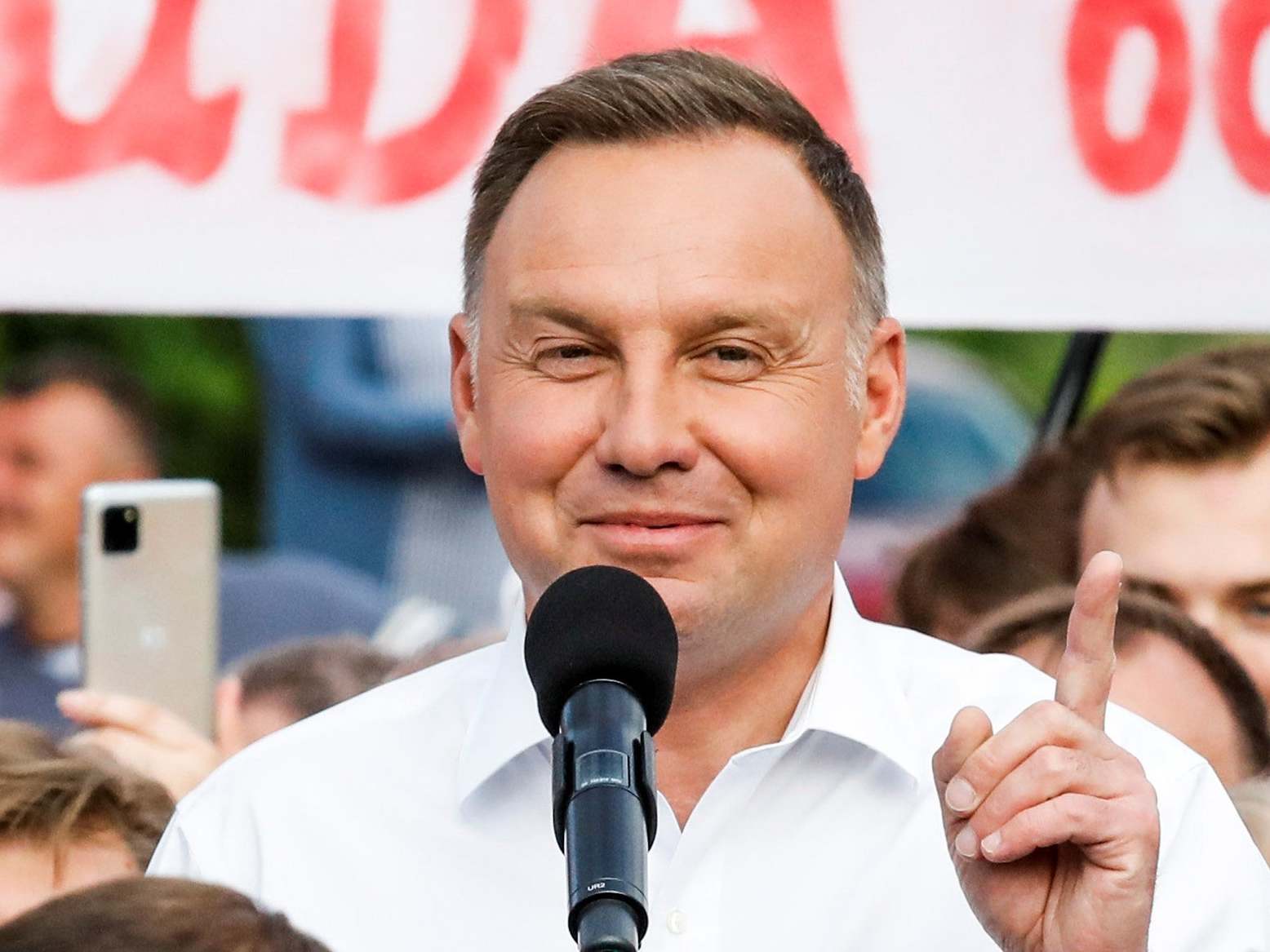Another world leader whose electoral victory heartens the far right
Poland’s president is unsympathetic to LGBT+ rights and the judiciary’s independence, writes Sean O'Grady


Not since the deeply symbolic election of Lech Walesa as the first president of post-communist Poland in 1990 has the contest attracted such international attention, nor been as unwelcome to the European Union of which Poland is an increasingly awkward member. Having the post in the hands of a figure, Andrzej Duda, so unsympathetic to LGBT+ rights and the independence of the judiciary is inconsistent with the EU’s fundamental liberal democratic ethos and its Charter of Fundamental Rights. It means further trouble between Brussels and Warsaw; but the populist nationalist right across the continent, and indeed the world, will be heartened by the result.
The post of president of Poland has few powers, but is not entirely ceremonial, and there is some discretion about what the head of state can do. It is also directly elected by the people, which adds a certain amount of legitimacy to the role.
The re-election, narrowly, of a conservative allied to Poland’s populist-conservative administration has a significance that reverberates far from Poland’s borders. For President Duda now has a popular mandate, at least in his eyes, to facilitate and support the PiS (Law and Justice Party) in its programme of reactionary reform. The PiS prime minister, Mateus Morawiecki, will now feel emboldened to further tame the judiciary, the media, local government and to push back on LGBT+ equality and human rights. The Polish government will also resist taking its share of migrants coming across the Mediterranean. On this Poland enjoys the enthusiastic support of fellow traveller Viktor Orban, prime minister of Hungary, and like-minded figures such as Marine le Pen in France and Matteo Salvini in Italy. The EU, particularly the commission and parliament, is unsure as to how to respond. Some wish to cut EU financial transfers to Poland; others sympathise with the PiS, and there is a general reluctance to confront the problem. That leaves the position in Poland unstable at best.
Like Donald Trump, Jair Bolsonaro, Recep Tayyip Ergogan, Vladimir Putin, Narendra Modi, Xi Jinping and Rodrigo Duterte, Mr Duda is a member of a heterodox club that are sometimes hostile to each other but have in common a militantly anti-internationalist agenda. Some might include Boris Johnson’s “people’s government” on that category.
The re-election of President Duda confirms two things. First, most obviously, that the populist nationalist right is not on retreat, or at least not in retreat everywhere, even where there are free elections. Since the defeat of Ms Le Pen by Emanuel Macron in the French presidential election in 2017 there have been predictions that a tide may be turning. While the likes of Ms Le Pen and Mr Salvini have suffered further reverses in recent weeks, others, such as Mr Erdogan and Mr Putin, have prospered. Even if Mr Trump is defeated by Joe Biden in November, that does not necessarily mean his brand of politics is dead in America, or anywhere else.
So, following from that, it seems that populist parties, usually of the right but, as in Ireland, Germany and Spain, sometimes of the “red-green” radical left, are becoming a more normalised, permanent feature of the political landscape. As in Poland they often seem to thrive on the disdain of their opponents and foreign neighbours, the political equivalent of the old Millwall Football Club’s chant, “No one likes us, we don’t care.” They’re not going away.
Join our commenting forum
Join thought-provoking conversations, follow other Independent readers and see their replies
Comments